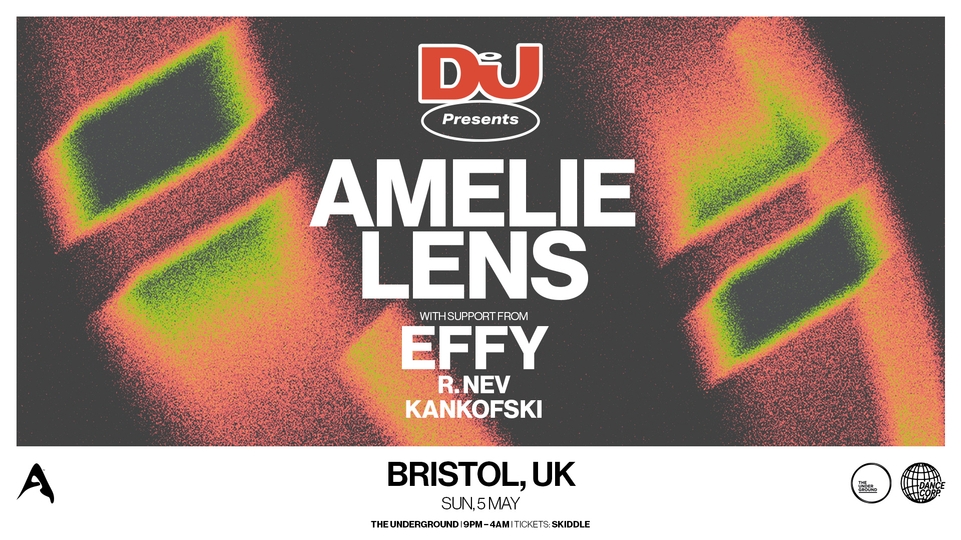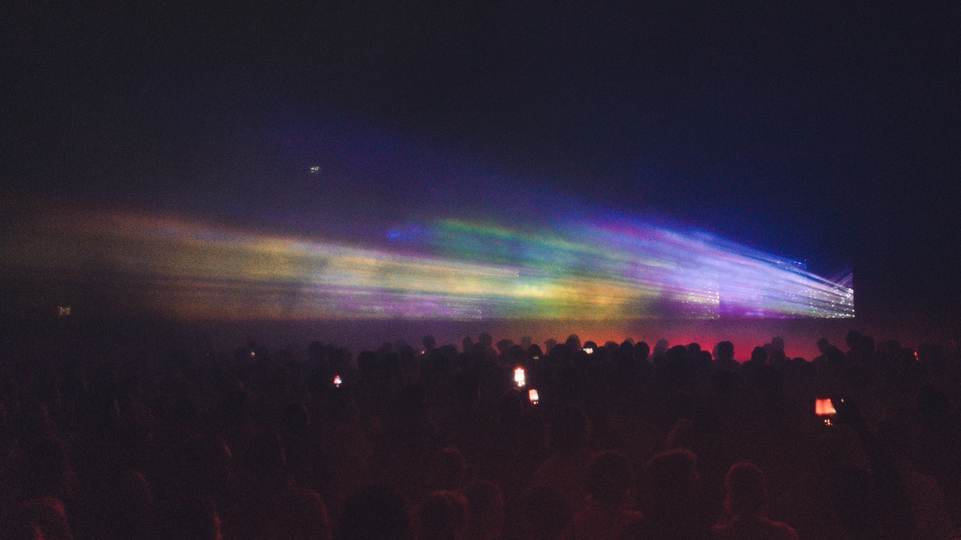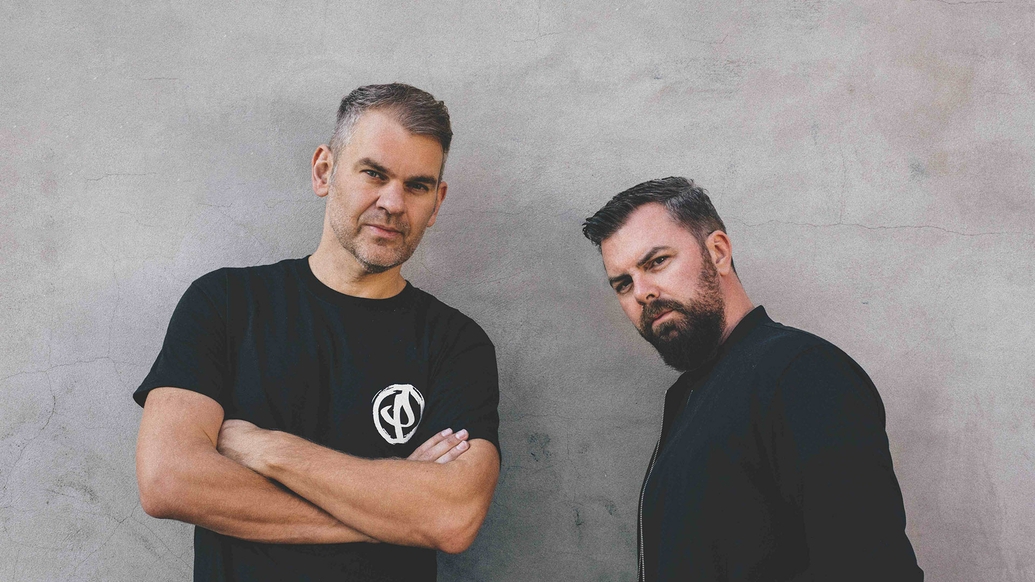
Stanton Warriors: "It's time for a more underground sound to rise"
Stanton Warriors are the UK breaks and bass duo who've fought fiercely to push their genre-blending sound for more than two decades. And with a new album on the horizon, more gigs than ever and a thriving label, they're winning the battle - and then some..
Dominic Butler and Mark Yardley famously took the name Stanton Warriors from a manhole cover on a Bristol street in the mid ’90s. An apt name for an exciting time in UK music, as breakbeats raged war with some of the most prominent sounds of the era; trip-hop, UK garage and jungle, the very melting pot from which Butler and Yardley came. But as more years go by, the more their name fits them perfectly. Since their first release in 1997, these warriors have weathered every trend campaign and genre skirmish twice over; they battled through the birth, death and return of breaks, they were marked safe at no less than three garage revivals, and have survived the great invasions of electro, minimal, dubstep, bass house and deep house.
Yet they’ve always remained relevant, been consistently present on major event line-ups around the world and, most importantly, have always done their own damned thing for 22 years. “It’s weird, we seem to have made a niche for ourselves,” Butler says. Tall, dark, salt-and-pepper stubble, casually dressed, a subtle West Country twang to his accent; he doesn’t look or sound much like a warrior. Neither does his bearded partner in grime, Yardley. But, as we all know, heroes don’t always wear capes.
“We don’t fit in a pre-existing scene,” he continues. “Sometimes I wish we were techno or drum & bass DJs, where we did fit into a scene, but our style doesn’t exist in that way. It’s a curse and a blessing. You don’t have a home, and you have to fight and hustle for it a lot more. But you have something different to present to people, that stands out.”
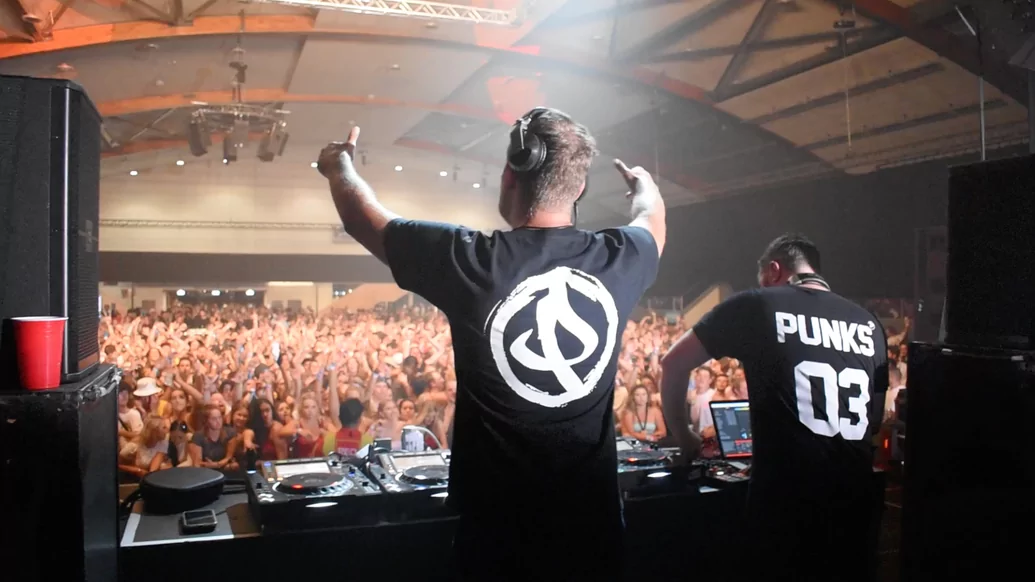

Rise Up
Spoken like a true soldier; their fight has taken them around the world many times over. Their home has been on the road. And the fact they stand out ensures they get booked time and time again. Butler jokes they’re the “token leftfield act”, but there’s truth in his jest. “The gigs we get tend to all have a different sound or put us with different people,” he says. “At one event we’ll be playing with guys like Redlight, then another gig, and it’s all dubstep, or a festival where everyone is techno. We played in Vietnam over New Year, which was six days of pure techno, and we were the only non-techno act.”
Further evidence is clear when DJ Mag meets the Bristol-born/London-based non-techno act. They’ve been on home soil for less than a day and are looking just a tad battle-weary from three months on tour. Asia, Australia, Panama and America (twice) have welcomed them since New Year, and days after our meeting, they head back on the road for Snowbombing, which kick-starts their standard festival season. Their most recent stop-off was perhaps the most fitting in terms of this warrior tale: Miami Music Week. No better place for an act that doesn’t fit any pre-conceived genre, yet works alongside them all. During their time there, they shared line-ups with acts ranging from hit-maker Chris Lake to turntablist DJ Craze. Had they stayed any longer, Colonel Sanders might have called them up and asked for a b2b. “KFC are a nasty company,” Butler says. Yardley, the more reserved, and a little more jetlagged of the duo, nods grimly.
“They’re causing crazy environmental damage, and the levels of animal cruelty is abhorrent,” Yardley says. “They’ve put their beak into this music and that’s a terrible thing. But we shouldn’t be shocked. It’s not that far removed from what we’ve seen before anyway; we’ve seen people in masks play pre-recorded sets with our own eyes.” Being the ‘token’ leftfield act on more mainstream line-ups has given the duo other insights. Butler recalls a festival a few years ago where they were following an EDM headliner, and he took a peek at the decks and saw the one CDJ counting down from 40 minutes.
“It must be boring as hell standing there with your hands up and nothing to actually do, but hey,” Butler says. “The light show and the fireworks look nice. But if you are a superstar EDM guy on megabucks, why wouldn’t you? People are only there to hear your big tunes, they don’t give a fuck if you’re mixing or not. I don’t blame them. But I also know that if you did that on a soundsystem in Bristol back in the day, you’d get beaten up.”
Yet more warrior talk. He spares the Colonel any further wrath or vitriol, and can actually see a benefit. “Maybe this is what we need?” he shrugs. “Maybe it will take something as brazen and corporate and nasty as the Colonel to make kids turn around and go, ‘Fuck this bullshit’, and find something that’s not made just for shareholder dividends. Maybe this is the trigger for a rebellion, it’s time for a more underground sound to ‘rise’.”
"..You have to appreciate it, and no matter how much hard work it is, no matter how much you have to fight for the music you want to make, it’s better than any other job"
Rise & Shine
With that, our combatant raises a wry eyebrow. Dominic’s segue was largely for pun’s sake, but it’s clear they’d rather talk about their new album than a greasy-fingered corporate entity. Quite right, too; ‘Rise’ is not only their most diverse album to date, it’s also their biggest in terms of its delivery. Having released most of their previous material on their own underground, new-talent championing Punks label, this album comes on mainstream juggernaut New State, a label that’s just as happy dishing up Dave Pearce trance mixes and chill-out compilations.
“In this day and age, we’re quite surprised when a label comes to you,” Butler admits. “But they’ve been the perfect home for us besides our own Punks imprint. They get what we’re about, they’ve treated us respectfully, given us a boost and more resources, and more marketing and all of that for us to get the music further out there. The biggest difference was legitimising all the samples.”
If you like basslines, broken beats (and indeed legitimised samples), you might well be interested in the music as well. Landing four years after their vocal top-heavy ‘Rebel Bass’ album, their fourth long-player hits that Stanton sweet-spot more succinctly than their previous collections. It captures their flexibility and the musical magpie nature they’ve inherited from their Bristol roots. It’s not shy of a gully bassline or booty-walloping drum rhythm, but neither is it afraid to go bright, vocal and hooky, and playfully close to daytime radio. In the case of ‘What You Got Now’ (a collaboration with Night Bass affiliate Taiki Nulight), these poles are captured within one tune alone, as a late ’90s Ibiza trance-tinged intro and vocal build up to an outrageous, aggy bassline-inspired drop.
The strongest moments on the album, though, can be found in ‘Forget About Me’ and ‘They Follow’: the former, a bubbling Miami freestyle sing-along daytime vibe you could just as easily imagine hearing in the gym or rollerskating to; the latter, a powerfully swampy, tribal stampede with Stush and Foreign Beggars that’s one of the heaviest and most forward-thinking club flatteners the duo have ever concocted. It’s by far the best representation of the Stanton Warriors sound you’re most likely to experience in the dance. Between these two extremes, we find the rest of the album bubbling and flexing largely with a considered palette of classic house and garage sounds. ‘Greenlight’ nods towards the Sunship style of jazzy late ’90s UKG, ‘Over You’ and ‘Sky God’ touch on the velvet chords and spacious elements of the early Get Physical sound of the mid 2000s, and ‘So Divine’ takes us back to ‘Northern Exposure’-era Sasha & Digweed: all trancey, crystalline and not dissimilar to the breakbeat sound Bicep have championed in recent years.
Meanwhile, ushering us into the album are the strident piano house keys and soaring vocals of ex Kosheen/DJ Fresh collaborator Sian Evans on ‘Up2U’, while the title track is a hazy, soulful sunrise deep house cut that signs the album out.
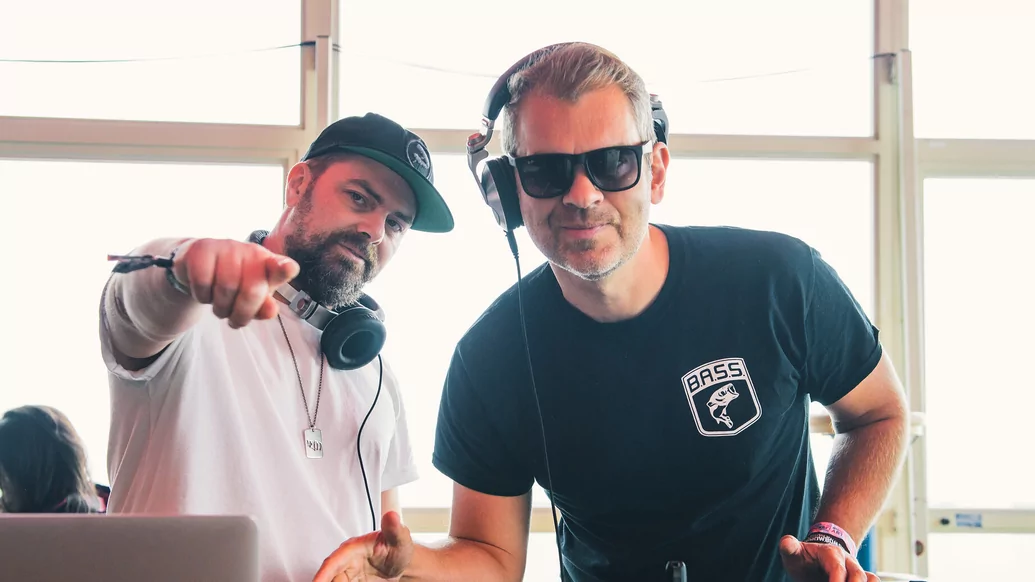

Rise & Grind
“You can make club tunes that sound good on a system, but don’t sound that great on an album,” Butler says. “You can make deep tracks for an album, but they don’t work in the club. It’s this Spotify vs the dancefloor battle you’re constantly in the middle of, but I think the whole album straddles that divide. We’re happy with how we’ve done it. There are the underground tracks, there are the tracks where you get back from the club, put your feet up and smoke a spliff, and there’s things in between.” The balance has been well considered, with its 12 tracks being refined from a persy stockade of 50, including a collaboration with Wu Tang affiliate Killah Priest which they didn’t feel was right for the album.
Other tracks that didn’t quite make the fine balance of the LP, meanwhile, can be heard on a whole other part to the release; an hour-long DJ mix that portrays a more club-ready action snapshot of the duo. Much heavier, rolling and fluid, it fills the gaps their heavier bass fans might miss without compromising the more accessible flow of the album. A whirling blend of rhythms and styles, all coated in those big belly 808 kicks the duo are synonymous with, it taps into an LP tradition the Stanton Warriors are much more famous for than studio albums. “We just love good beats; whether that’s UKG, booty bass, favela funk, electro, Afrobeat, breakbeat, whatever genre it is, if it fits our sound then we’ll play it,” Butler says. “That’s been the vibe all along, we cherry-pick from every genre, finding things that fit our sound. That goes right back to ‘Stanton Sessions Vol 1’.” It’s a mix album that, at the turn of the century, had just as much ‘must-have’ status as Kruder & Dorfmeister’s ‘K&D Sessions’, 2ManyDJs’ ‘Radio Soulwax Vol 2’ or an Ikea Billy bookshelf. The 2001-released ‘Stanton Sessions’ mix was what truly catapulted Yardley and Butler to that left-side-of-mainstream headliner tier they’ve battled in ever since. Blending everything from The Streets to Renegade Soundwave via DJ Zinc, Bushwacka and Shut Up & Dance, it was a much more permanent calling card than any big crossover banger or accomplished studio album could have possibly been, and still stands the test of time incredibly well 18 years later.
Its success was also likely to have been one of the strongest accelerants in the rise of their hype, which led to a frustrating chapter in the duo’s history. A chapter that could, in hindsight, be one of the most pivotal keys to their longevity. They were shelved by a major label and couldn’t release any tracks — officially — for a large chunk of the 2000s. “Well, it meant we had shit-loads of exclusive tunes to play out,” Butler says. “But we did have to hold our own as DJs if we wanted to stay doing what we were doing. We couldn’t put a release out to get more bookings even if we wanted to. But that led to us not having to do that. We don’t have to release any music, and our schedule has never been busier. Not every artist has that luxury. We can hold a crowd, smash it and get booked again. We’ve circumvented the trends and keep on trucking. Maybe it was a blessing in disguise? It didn’t feel like it at the time. It did feel like a fight. But yeah, it could well have been...”
Rise & Peas
Another silver lining of this otherwise dark chapter was the earliest incarnation of their now flourishing beats label Punks. A covert ops platform to release unofficial tracks and bootlegs under the Punks alias during their time on the shelf, the white label imprint eventually developed into one of the most prominent labels in UK bass and beats, where the likes of Wuki, Hypho, Led Astray, Left/Right and many more have all dropped broken beat science in recent years. “There’s plenty more where that came from,” Butler says. “There’s so much talent out there, and we’ve got some amazing artists coming through. We’re really optimistic about this sound. There’s a real love for it out there, even though no one really knows what to call it. Maybe in this world of things being too cheesy and genres getting sterile, it’s a good time for something different? Either way, it’s really inspiring.”
And while warriors aren’t usually known for gushy inspirational outbursts, once again it captures the pair’s fighting spirit that’s kept them not just relevant, but tight as a duo for over two decades; there is a genuine drive and passion for what they do. “We’ve got loads of ideas and have never run out. I think acts split when they lose that passion and interest,” Butler says. “You’ve got to enjoy it though, haven’t you? Yeah there are peaks and troughs, and I would say it’s harder now to maintain any type of momentum and relevance than it’s ever been. It’s fucking competitive out there. But you have to appreciate it, and no matter how much hard work it is, no matter how much you have to fight for the music you want to make, it’s better than any other job.” Now that’s warrior talk.
